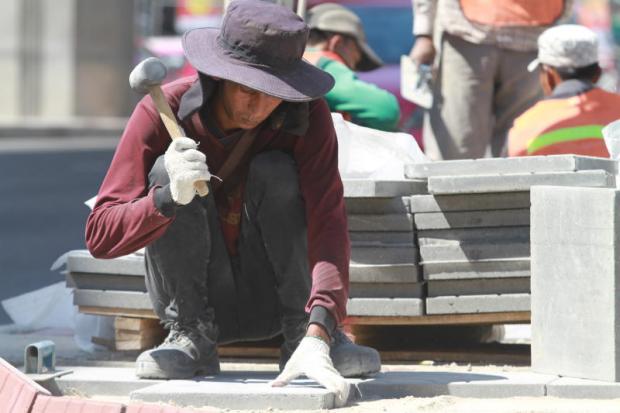
Around 95% of Thai blue-collar workers are heavily in debt and need the government to help raise wages and reduce their livings costs, according to the Thai Labour Reconciliation Committee (TLRC).
Chalee Loysung, chairman of the TLRC, said research prepared by the committee indicated that 98% of blue-collar workers in the country have problems with debts.
In times past, these workers could survive by working overtime, but automation and less money in the economy have curtailed these opportunities, he said.
The cost of living, meanwhile, continues to rise at speeds the recent minimum wage hike has not kept up with, he said.
"Personally, I believe that the government should find more effective measures to control the prices of essential items instead of opening new Thong Fa [blue flag] low-priced consumer product shops.
"As these shops don't cover all areas of the country, they are not effective in lowering the costs living for many people," he said.
Mr Chalee said that the government has to tackle the debt problem facing many Thai workers at its roots.
"More than 40% of employers aren't willing to raise the daily wages for their employees. Therefore, the government should come up with a legal mechanism to require employers to raise wage rates based on performance," said Mr Chalee.
He also accused the military government of not taking labour issues seriously.
"The current government has exercised Section 44 of the constitution to enforce everything except proper changes to the wage adjustment system," he said.
In related news, a new public opinion survey conducted by Bangkok Poll of Bangkok University showed that 62% of 1,160 poll respondents -- all blue-collar workers -- hope to see the minimum daily wage raised to 400 baht when a new government takes office.
In addition, 79% of those surveyed want the new government to control the prices of consumer products.
The majority (42%) said they earned just enough to cover their expenses with nothing left to save, while 32% said they didn't earn enough to cover living costs.
Only 26% of the surveyed workers said they earned enough money to save anything after paying their bills, said the poll.
Meanwhile, the National Institute for Emergency Medicine revealed that last year 42,127 workers were injured in work-related accidents such as falls or machinery-related accidents.
ST segment elevation myocardial infarction (Stemi), a type of heart attack caused by blocked major arteries, was also frequently reported.
Some 24,354 workers last year were reported to have suffered Stemi, according to Dr Pairoj Boonsirikamchai, deputy secretary-general of the institute.